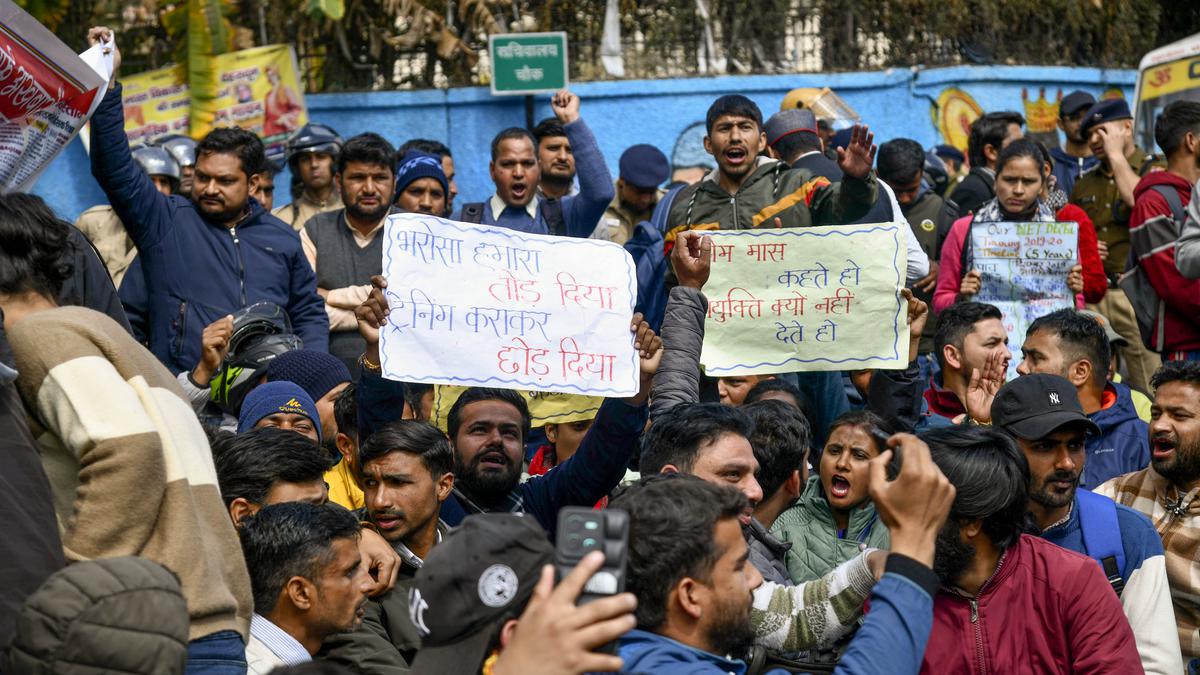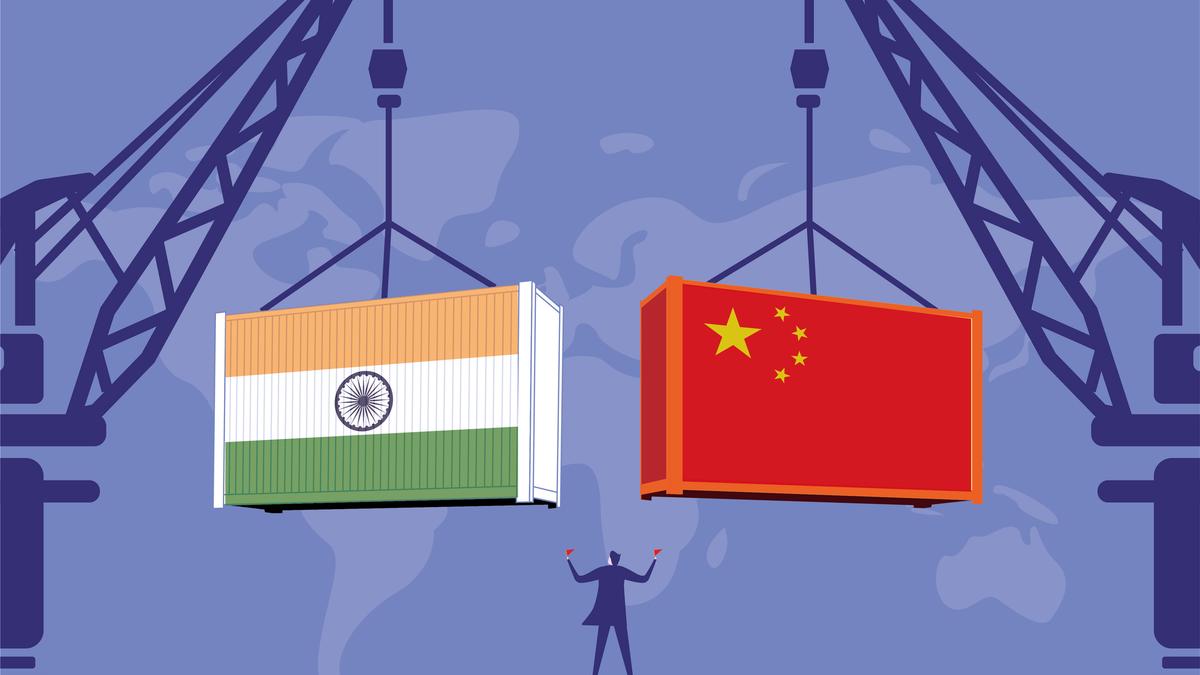People hold posters as they stage a protest against unemployment and various other demands, in Dehradun.
| Photo Credit: ANI
Unemployment and price rise are the key concerns of nearly half the electorate, the CSDS-Lokniti pre-poll survey in the run-up to the 2024 general elections revealed. This was a significant finding in the first part of a series of articles on the pre-poll survey.
Also Read: Lokniti CSDS 2024 Lok Sabha elections: a package
Nearly two thirds of those surveyed (62%), with the highest among cities (65%), across localities expressed that getting jobs had become more difficult. The numbers for those living in villages and towns were 62% and 59% respectively while 65% of the men shared this opinion compared to 59% of the women. Only 12% said getting jobs had become easier.
The concern was highest among Muslims with 67% saying that getting jobs had become difficult, a number closely matched by Hindus from Other Backward Classes and Scheduled Castes — 63% each and Scheduled Tribes (59%). The opinion that jobs were easier to get was shared the highest among Hindu upper castes (17%), even as 57% of them felt that jobs were more difficult to get.
The opinions on price rise mirrored that of unemployment with a whopping 71% saying that prices have increased, with the number increasing to 76% among the poor, 76% and 75% among Muslims and Scheduled Castes.
While the numbers on these two issues indicate that prospective voters were worried about the state of the economy, the survey also revealed that a near-equal number believed that State governments (17% as opposed to 21% for the Centre, with 57% saying “both”) were responsible for shrinking job opportunities. Corresponding numbers for the issue of price rise were 26% for the Centre, 12% for the State and 56% for both.
Quality of life
About 48% indicated that their quality of life was much or somewhat better, while 14% said it stayed the same and 35% said it was worse off in the last five years. Only 22% said they could fulfill their needs and save money from their household income as opposed to those who couldn’t save but could fulfill their needs (36%), faced some difficulties (23%) and were not able to fulfill needs at all (12%).
A significant section, 55% (quite higher than the 40% of those surveyed in the 2019 Lokniti pre-poll) said corruption had increased with only 19% saying that it had decreased (a fall from 37% who felt so in 2019). And more respondents (25%) blamed the Centre than the States (16%) with 56% blaming them both for corruption.
Notwithstanding these concerns, nearly half of those surveyed said development in the last five years has been inclusive.




